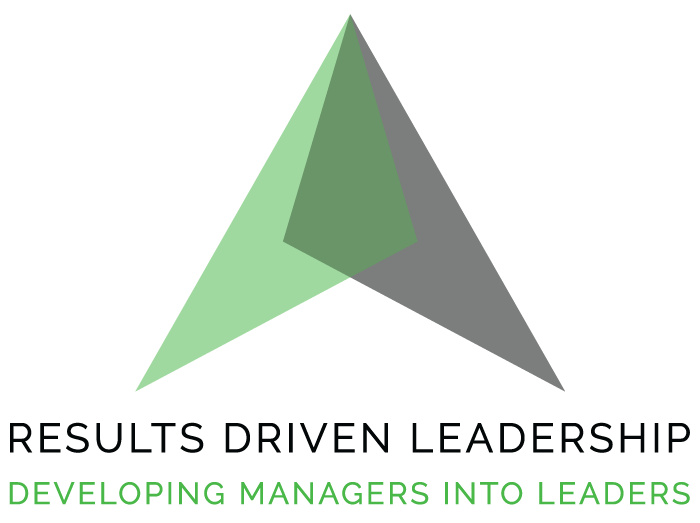As leaders, managers have always been tasked with the responsibility of motivating and driving their team members to achieve success.
However, this challenge has become especially pronounced in recent years as more Gen Z’ers enter the workforce. As a leader, it is essential that you not only understand this generation’s unique traits and beliefs but also possess the skills necessary to manage them in an effective manner. In order to help you hone your craft further and be fully equipped to work alongside Gen Z colleagues, here are some key leadership competencies needed for managing this tech-savvy cohort of young professionals.
In recent years, the workforce has been changing rapidly, and the rise of the Gen Z employees has brought about new challenges for managers. Gen Z, also known as the “iGeneration,” are individuals born between the mid-1990s and the mid-2000s. They are digital natives who grew up with technology and social media, and they have unique expectations, values, and preferences that differ from those of previous generations. As such, managers must adapt their leadership style to be more effective in leading this group of employees.
According to a recent survey conducted by One Poll, nearly 75% of managers said that Gen Z is more difficult to work with than other generations. Moreover, 12% of managers said they’ve fired a Gen Z employee in their first week of work, and being too easily offended is often to blame. This finding highlights the importance of understanding the unique needs and preferences of Gen Z employees to ensure that they are motivated, engaged, and productive in the workplace.

To be more effective in leading Gen Z employees, managers must change their leadership style in several ways.
First and foremost, managers must adopt a coaching approach to leadership. Unlike previous generations who may have been satisfied with a directive leadership style, Gen Z employees want their managers to be coaches who can provide guidance, feedback, and support. They want their managers to help them develop their skills and achieve their career goals. As such, managers must be willing to invest time and effort into coaching their Gen Z employees.
Secondly, managers must be more flexible in their management style. Gen Z employees value flexibility and autonomy in the workplace. They want to work in an environment that allows them to have a good work-life balance and the freedom to work in a way that suits them best. Managers must be willing to accommodate their employees’ preferences, such as allowing them to work remotely or adjusting their work schedule to fit their needs.

Thirdly, managers must embrace technology and innovation. Gen Z employees are digital natives who grew up with technology, and they expect their workplaces to be tech-savvy and innovative. Managers must be willing to invest in the latest tools and technology to ensure that their Gen Z employees have the resources they need to be productive and efficient. Moreover, managers must be open to new ideas and ways of working to foster a culture of innovation and creativity.
Fourthly, managers must provide regular feedback and recognition. Gen Z employees want to know how they are performing and how they can improve. They value regular feedback and recognition for their efforts. Managers must be willing to provide constructive feedback and recognition to help their Gen Z employees develop their skills and stay motivated.

Fifthly, managers must be more inclusive and diverse. Gen Z employees value diversity and inclusivity in the workplace. They want to work in an environment that is respectful and inclusive of all individuals, regardless of their background or identity. Managers must be willing to promote diversity and inclusivity in their workplace policies and practices to ensure that their Gen Z employees feel valued and respected.
The sixth point is that managers must be transparent and honest in their communication. Gen Z employees value transparency and honesty in the workplace. They want their managers to communicate openly and honestly about company goals, expectations, and challenges. Managers must be willing to communicate regularly and transparently with their Gen Z employees to build trust and foster a culture of transparency.
Want to Learn How to Give Feedback Effectively with our Course Performance Management That Works for Only $47
All the knowledge and Tools You Need to Rock as you Master Your Leadership Style
Furthermore, Gen Z employees value continuous learning and development. They want to improve their skills and knowledge and pursue opportunities for growth and advancement. Managers who provide regular feedback, coaching, and opportunities for learning and development can keep their Gen Z employees engaged and motivated.
Learn to Develop Your Team
Take Our Course Developing Your Team Members for Improved Productivity for Only $47
To be more effective in leading Gen Z employees, managers must be willing to adapt to these unique preferences and characteristics. They must be open-minded, flexible, and willing to embrace change. Moreover, managers must be willing to learn from their Gen Z employees and incorporate their ideas and perspectives into the workplace. By doing so, managers can create a more dynamic and innovative workplace that meets the needs and expectations of all employees.
To effectively lead Gen Z employees, managers must possess certain key leadership skills. Here are five skills that managers must improve to lead Gen Z employees:
Coaching and Mentoring: Gen Z employees want managers who can guide and mentor them to develop their skills and reach their career goals. Managers must be able to provide ongoing coaching and support to help their Gen Z employees succeed. This involves actively listening to their employees’ feedback and concerns, providing regular feedback, and giving them the resources they need to excel.
Flexibility: Gen Z employees value flexibility and autonomy in their work. Managers must be willing to adjust their management style to accommodate their employees’ needs and preferences. This includes offering flexible work arrangements, such as remote work, and being open to new ideas and ways of working.
Technology Savvy: Gen Z employees are digital natives who grew up with technology. They expect their workplaces to be tech-savvy and innovative. Managers must be comfortable with technology and be willing to invest in the latest tools and resources to help their employees be productive and efficient.
Inclusivity and Diversity: Gen Z employees value diversity and inclusivity in the workplace. They want to work in an environment that is respectful and accepting of all individuals, regardless of their background or identity. Managers must promote inclusivity and diversity in their workplace policies and practices to ensure that their Gen Z employees feel valued and respected.
Transparency and Communication: Gen Z employees value transparency and honesty in the workplace. They want their managers to communicate openly and honestly about company goals, expectations, and challenges. Managers must be transparent and honest in their communication to build trust and foster a culture of transparency.

In conclusion, effective leadership of Gen Z employees requires managers to possess certain key leadership skills. These include coaching and mentoring, flexibility, technology savvy, inclusivity and diversity, and transparency and communication. By improving these skills, managers can create a more engaged, motivated, and productive workforce.
Results-driven leadership management training can provide the solution management teams need to lead and manage Gen Z employees effectively. This type of training focuses on developing the leadership skills needed to achieve results and meet organizational goals. By equipping managers with the necessary skills to coach, mentor, and motivate their Gen Z employees, this training can help managers become more effective leaders. It can also help managers understand the unique needs and preferences of Gen Z employees and develop management strategies that align with those needs. Results-driven leadership management training can ultimately improve employee engagement, productivity, and retention, leading to better organizational outcomes.





